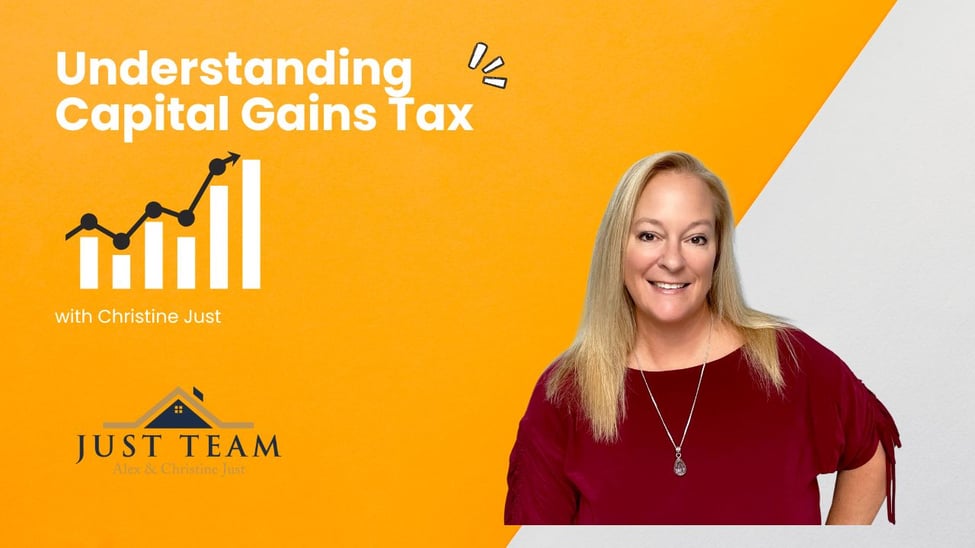Understanding Capital Gains Tax When Selling a Home in Ontario, Canada
If the property you’re selling is your primary residence, you may qualify for the Principal Residence Exemption (PRE). This exemption allows you to avoid paying capital gains tax on the sale.
To qualify, the home must have been your principal residence for every year you’ve owned it (or for all the years you’re claiming the exemption).
Selling a home in Ontario can be an exciting milestone, but it’s important to understand the financial implications, especially when it comes to capital gains tax. Whether you’re selling your primary residence, a vacation property, or an investment property, understanding the rules and potential tax obligations is crucial to avoiding surprises. In this blog, we’ll explore what capital gains tax is, how it applies to home sales, and tips for minimizing your tax liability.
What is Capital Gains Tax?
Capital gains tax is the tax you pay on the profit (or "gain") you make from selling a property or other investments.
Effective June 25, 2024, the inclusion rate for individuals is one-half (50%) on the first $250,000 of a capital gain, and two-thirds (66.67%) on any portion that exceeds $250,000
For example:
If you bought a property for $400,000 and sold it for $800,000, your capital gain is $400,000.
Property Sale Details:
- Purchase Price: $400,000
- Sale Price: $800,000
- Capital Gain: $800,000 - $400,000 = $400,000
First $250,000 taxed at 50% capital gains rate:
- Taxable portion: $250,000 × 50% = $125,000
Remaining $150,000 taxed at 66.67% capital gains rate:
- Taxable portion: $150,000 × 66.67% = $100,005
Total taxable income from the capital gain:
- $125,000 + $100,005 = $225,005
- So, $225,005 would be added to your taxable income.
- The amount of tax you’ll owe depends on your income tax bracket for that year.
Do You Always Pay Capital Gains Tax When Selling a Home?
The good news is that not all home sales are subject to capital gains tax. Let’s break it down:
Primary Residence
If the property you’re selling is your primary residence, you may qualify for the Principal Residence Exemption (PRE). This exemption allows you to avoid paying capital gains tax on the sale.
To qualify, the home must have been your principal residence for every year you’ve owned it (or for all the years you’re claiming the exemption).
Secondary or Investment Properties
If you’re selling a vacation home, rental property, or investment property, the Principal Residence Exemption does not apply, and you will likely owe capital gains tax on the profit.
In these cases, it’s important to keep records of all your expenses related to the property to reduce your taxable gain.
How to Calculate Capital Gains on a Home Sale
Here’s a step-by-step guide:
Determine Your Sale Price
This is the amount you sold the property for.
Subtract Your Adjusted Cost Base (ACB)
The ACB is the purchase price of the property plus any expenses related to purchasing or improving the property (e.g., legal fees, renovations, or upgrades).
Subtract Selling Expenses
Deduct costs such as real estate agent commissions, legal fees, and staging costs.
Calculate the Capital Gain
The remaining amount is your capital gain.
Tips to Minimize Capital Gains Tax
Maintain Accurate Records
Keep all receipts and documentation for property improvements, legal fees, and selling expenses. These can increase your adjusted cost base and reduce your taxable gain.
Plan Ahead
If you’re selling a secondary property, consider timing the sale in a year when your income is lower to reduce your overall tax burden.
Split Ownership
If the property is co-owned, the capital gain can be split between owners, potentially reducing the taxable amount for each person.
Consult a Tax Professional
A tax advisor or accountant can help you understand your specific situation and identify strategies to minimize your tax liability.
How We Can Help
Selling a home can be a complex process, and understanding the tax implications is just one piece of the puzzle. As experienced real estate professionals in Waterloo region, Ontario, we’re here to guide you every step of the way—from pricing your property to connecting you with trusted tax advisors.
Have questions about selling your home or need personalized advice? Contact us today, and let’s make your selling experience as smooth and profitable as possible.
